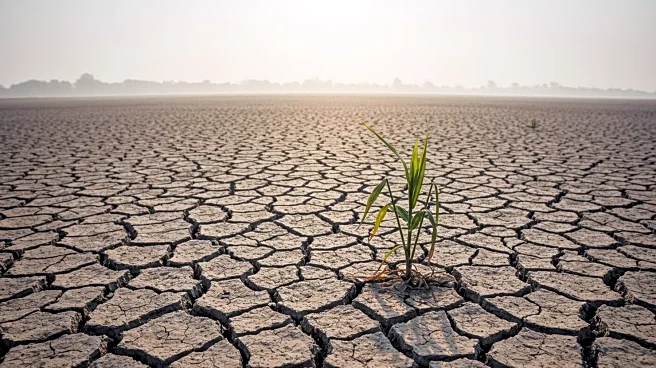What's Happening?
The United Nations-backed Integrated Food Security Phase Classification (IPC) has declared a famine in Gaza City and surrounding areas, marking the first such declaration in the region. The report highlights that over half a million people in the Gaza Strip are facing catastrophic conditions characterized by starvation, destitution, and death. The situation has been exacerbated by severe restrictions on aid entering the region, which Israel denies. The ongoing conflict has resulted in significant casualties, with more than 62,000 people killed since the start of Israel's military campaign in response to a Hamas-led attack in October 2023. The IPC report indicates that the famine is entirely man-made and calls for immediate action to prevent further deaths.
Why It's Important?
The confirmation of famine in Gaza City underscores a severe humanitarian crisis with significant implications for regional stability and international relations. The situation highlights the dire need for humanitarian aid and intervention to prevent further loss of life. The famine declaration may increase pressure on international bodies and governments to address the crisis and facilitate aid delivery. The ongoing conflict and humanitarian issues could also impact geopolitical dynamics, particularly in the Middle East, as countries and organizations may be compelled to respond to the growing humanitarian needs and potential violations of international law.
What's Next?
The IPC report calls for an immediate, large-scale response to address the famine conditions in Gaza. Without swift intervention, the number of people experiencing famine is expected to rise significantly, potentially affecting a third of the Gaza Strip's population. The international community may face increased pressure to broker a ceasefire and facilitate the delivery of humanitarian aid. Additionally, there may be calls for accountability regarding the use of starvation as a method of warfare, which could lead to further legal and diplomatic actions against those responsible.
Beyond the Headlines
The famine in Gaza raises critical ethical and legal questions about the use of starvation as a weapon in conflict. The situation may prompt discussions on international humanitarian law and the responsibilities of occupying powers to ensure the welfare of civilian populations. The crisis also highlights the broader challenges of addressing food insecurity in conflict zones and the need for sustainable solutions to prevent similar situations in the future.








